Iranian MP Faces Backlash After Criticizing Journalist's Exile
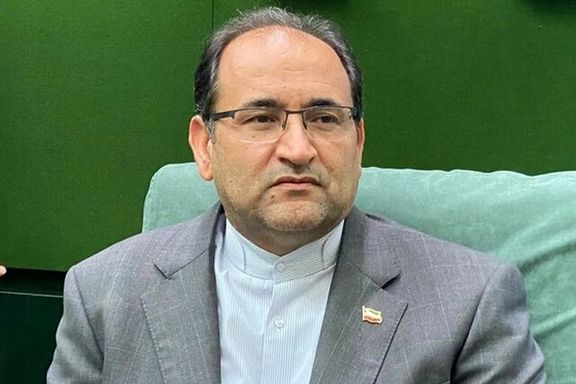
A member of the Iranian parliament says the country’s hardliners are “the most worthless creatures” that ever existed in the world.

A member of the Iranian parliament says the country’s hardliners are “the most worthless creatures” that ever existed in the world.
Jalil Rahimi Jahanabadi’s comments come following harsh criticism from regime supporters after he criticized the internal exile sentence against journalist Marzieh Mahmoudi to Torbat-e Jam, a city in the northeast.
Jahanabadi, representing the people of Torbat-e Jam in parliament, spoke out against the decision and expressed his disdain for those who filed the complaint that led to her sentencing.
After the ultraconservatives attacked him, Jahanabadi tweeted on Saturday that "You hardliners are the most useless creatures in the world, and people do not even give a damn about you."
Hamid Rasaei a hardline cleric had complained to the court against the journalist. In another tweet, Jahanabadi expressed surprise at the ruling and criticized the basis of the complaint, stating, "A strange ruling was announced in the news, and a female journalist was sentenced to be exiled to Torbat-e Jam due to a complaint by a cleric…We prefer to be in exile for the rest of our lives but not to agree with the likes of Rasaei."
However, his remarks subjected him to verbal attacks from supporters of the regime on social media platforms.
The initial dispute arose when Rasaei, former member of Parliament, made highly offensive remarks about protesters. Marzieh Mahmoudi, in response, criticized him in a post on her own social media page, which subsequently led to Rasaei’s complaint against her.

Amid the ongoing economic crisis in Iran, politicians and officials are making contradictory statements regarding the reported decrease in food consumption.
While some have expressed concerns over people’s reduced purchasing power, the vice president rejected these claims as “baseless”.
Ayub Fasahat, CEO of the Fruit and Vegetable Markets of Tehran Municipality, revealed on Friday the profound impact of the government decision in May 2022 to slash food import subsidies. Fasahat stated, "People's purchasing power has decreased drastically, and the consumption of dairy products in the country has declined between 28 to 30 percent."
However, Mohammad Hosseini, the parliamentary liaison of President Ebrahim Raisi, challenged such statements, highlighting the need for evidence-based claims. Hosseini remarked, "Some time ago, one of the MPs said that thousands of people are killed on the roads every day, or some say that inflation is 120%. What is the basis?"
Supporting Fasahat's concerns, the Ecoiran website quoted a Central Bank source in April saying that the annual inflation rate surged to 68.7 percent.
The depreciation of the Iranian rial, which halved in value in the past year, further exacerbates inflationary pressures. One year ago, the rial was trading at around 300,000 per US dollar, while currently it stands at 490,000. This depreciation tells the story of the impact of inflation on Iran's economy, as imports become more expensive.
The economic crisis has exacerbated social discontent, particularly among the younger generation. While large-scale anti-regime protests in 2022 were primarily driven by social and political oppression, the current economic challenges are contributing to mounting popular frustration.

As the Iranian parliament reviews the 7th development plan, lawmakers and legal experts say the plan further enables the government to invade people's privacy.
Khabar Online website has quoted Iranian lawyer Omid Salimi-Bani as saying that the text of one ambiguous article shows the government is planning to monitor people's lifestyle to make sure that they adhere to its Islamic standards.
The lawyer said it is up to every individual to be or not be religious. But it seems the government even wants to monitor people's shopping and travel. He likened the plan to the Big Brother in George Orwell's novel 1984. He added that some of what the government is planning to do has been branded as "crime" in the Law Against Computer Crimes.
Salimi-Bani further said that the plan violates several articles of the Iranian Constitutional Law about citizens' privacy.
Meanwhile, Khabar Online also quoted lawmaker Jalal Rashidi Koochaki as saying "Why the government should want to know whether the people are spiritual? What is it good for? Why the government wants to monitor people's lifestyle?"
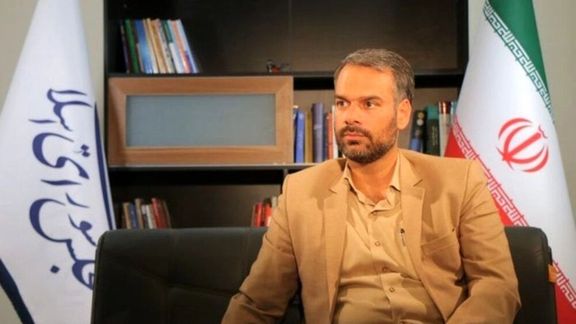
He criticized the plan's security approach where it says that "The Ministry of Culture and Islamic Guidance should continuously monitor cultural aspects of people's life and their lifestyles in order to pave the way for research." Koochaki reiterated that this part of the plan is an elaborate violation of people's privacy.
Another Iranian lawyer, Hamid Reza Aghababaeian told Khabar Online, "No individual or organization is allowed to invade people's privacy with the pretext of collecting information for research." He added that it violates articles 22 to 25 of the Human Rights Charter. He also said that collecting such data without permission from the court and the police and security forces is illegal.
He reminded that, based on the Iranian Penal Code, only judges are allowed to request the monitoring of people's private data.
In another development, Iran's Intelligence Minister Esmail Khatib told reporters that his ministry is considering to intervene several judiciary cases about the people's "mental or psychological security on social media.,” probably referring to a recent trend to label dissidents a threat to people’s mental wellbeing.
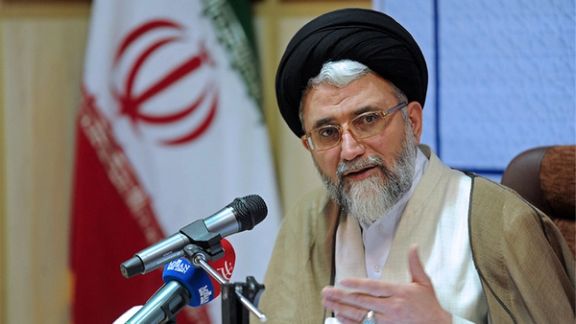
Asked if he did monitor social media, Khatib said: "If I do not monitor social media, then I cannot be the Minister of Intelligence." Responding to the question whether he would allow his children and grandchildren to be active in social media on their smart phones, the minister said: "We have agreed with my children that they should only use Iranian social media platforms."
Iranian social media applications are notorious for collecting and abusing people's private data, both for commercial and government intelligence purposes.
The Islamic Republic has banned all foreign social media applications, because it is afraid of the free flow of information and the likelihood of people organizing opposition using Facebook or Twitter.
Reports this week quoted hardliner commentator Mohammad Sadeq Kooshki as saying that "Instagram has become a venue to recruit terrorists." Kooshki added: "Unfortunately, social media platform including Instagram are not lawful in Iran. Terrorists can contact and recruit people on social media, so, Israeli and European intelligence agents do not need to meet people face to face for recruitment."
The government has banned foreign social media platforms in Iran, however, millions of Iranians use them by circumventing government restrictions by VPN (Virtual Private Networks) also known in Iran as filter breakers.

Iran’s government has submitted a bill to parliament to approve sending the case of $7 billion frozen by South Korean banks to arbitration.
Media in Tehran published a letter by President Ebrahim Raisi sent to parliament speaker Mohammad Bagher Ghalibaf on Saturday.
The funds were frozen at two Seoul banks after the United States withdrew from the 2015 JCPOA nuclear accord and imposed sanctions on Iran, including its banking sector. South Korea owed the money for oil imports before full US sanctions kicked in in May 2019.
It is not clear why the Iranian government needs a parliamentary vote for sending the dispute to arbitration, except to try to build a stronger case. The letter also does not mention what kind of arbitration Tehran has in mind.
The frozen funds have been the subject of long negotiations between Tehran, Seoul and Washington over the past two years, as the Biden administration launched talks with Iran in April 2021 to revive the JCPOA. Many reports and statements point to possible release of the funds in exchange for several US citizens held hostage in Iran.
Both the nuclear talks and the prisoner release talks have not succeeded in making meaningful progress. However, US officials say that efforts to secure the release of four Americans continue. Apparently, one US condition is to set up a mechanism for the disbursement of the funds for purchasing only non-sanctionable goods by Iran such as food and medicine.
There are similar frozen assets in Iraq, Japan and elsewhere that Iran desperately needs amid a serious economic crisis and continuing sanctions.
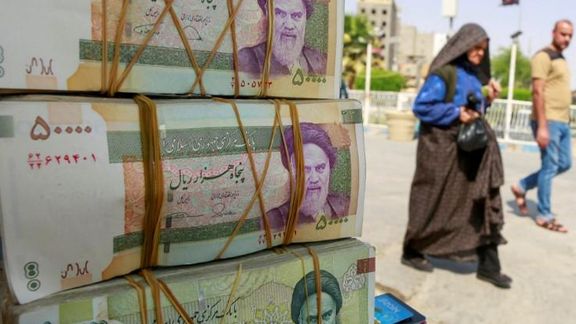
Experts in Tehran are debating the potential impact of a recent US decision to allow Iraq to pay some of its debts to Iran on the country’s ongoing economic crisis.
Earlier this week, the Biden Administration announced that some of Iran’s frozen funds in Iraq will go to Oman, acting as a conduit to release the money for purchasing non-sanctionable goods under US supervision. Iraq owes Iran around $11 billion for imports of gas and electricity, but US banking sanctions prohibit dollar transactions with Iran. In June, the US agreed to make $2.7 billion available for Iran’s humanitarian needs.
Despite this development, the Iranian currency, the rial, has not shown improvement and continues to trade at around 500,000 rials per US dollar, as its value has drastically depreciated in the past year.
Businessman Masoud Daneshmand expressed doubts about the impact of the released funds, stating that the Iranian government would not receive any cash directly. Instead, after Iran purchases goods like wheat, it can present invoices, and Oman will release the money following US verification. Hence, the government will not have additional funds to impact the currency market.
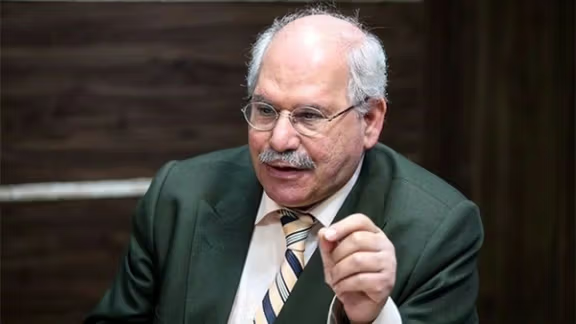
Others, however, disagree with this perspective. Some argue that any released funds, even for food and medicine, could free up other foreign currencies for purposes such as supporting armed proxy groups in the region or producing military equipment such as drones that are supplied to Russia for its invasion of Ukraine.
Amidst the ongoing economic crisis, Iran’s annual inflation is estimated to be somewhere between 50-70 percent, in the absence of reliable figures. However, what is certain is that food prices have risen much faster. Media and even regime politicians have been saying for months that food price inflation is around 100 percent.
Nevertheless, Ahmad Kimiyai, an economist, believes that the release of frozen funds, though not in cash dollars, is still beneficial. It allows some assets to enter the country despite sanctions and can be used for humanitarian imports, addressing shortages of food and medicine.
However, he said it is much better that the money can be used for humanitarian imports instead of cash transfers. “This is better than if the money reached the government, because it might be tempted to do populist acts,” referring to cash handout schemes to the population.
“Now we are certain that goods will be imported that can reach the people’s dinner tables,” and help with shortages of medicine, Kimiyai said.
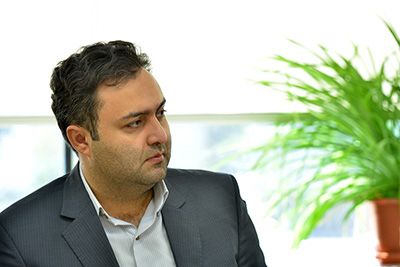
On the other hand, businessman Kamran Soltanizadeh, who is the head of Iran’s currency exchangers indirectly criticized government propaganda highlighting that the US has released the frozen funds. He argued that there has been no official statement about exactly how much, when and how funds have been released.
He also stressed that the Iranian government is injecting dollars and other hard currencies into the forex market to support the rial, and if it were not for these interventions, the national currency would have fallen further.
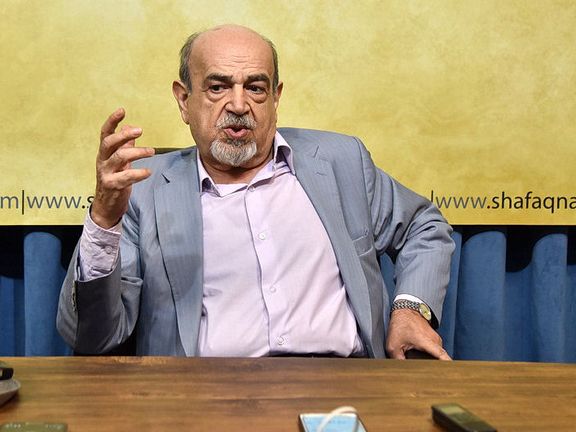
Behrooz Behzadi, the editor-in-chief of Etemad, one of Tehran's prominent reformist dailies, has been barred from media activities by a court in Iran.
After a complaint lodged by IRGC's Thar-Allah headquarters in the capital, and a trial, Behzadi received a six-month prison sentence on grounds of "publishing false content." However, in a subsequent decision, the court opted to amend the sentence to a one-year prohibition from engaging in any form of media responsibility.
The Thar-Allah Headquarters, is a command within the Islamic Revolutionary Guard Corps, responsible for security in the Tehran area. This means it is the principle military force organzing suppression of protests.
The charges against Behzadi primarily stemmed from an interview conducted by Etemad with Dariush Farhood, a revered figure in the field of Iranian genetic science and his alleged abduction by plainclothes agents. Another complaint concerned an article highlighting the arrest of cinematographers and artists who stood in solidarity with the people during nationwide protests.
The court contended that the interview with Farhood presented information that was deemed “false and misleading”.
The case's outcome brings to attention the ongoing challenges faced by media professionals in Iran, where press freedom has been a contentious issue for decades. The 2023 World Press Freedom Index, as compiled by Reporters Without Borders (RSF), ranked Iran at the lowest position on the list, marginally above countries like Vietnam, China, and North Korea, reflecting the gravity of the situation.
Throughout the years, Iran has incarcerated hundreds journalists, writers, and bloggers, often accusing them of jeopardizing national security by expressing their opinions. Tragically, some of these individuals have lost their lives while in detention.